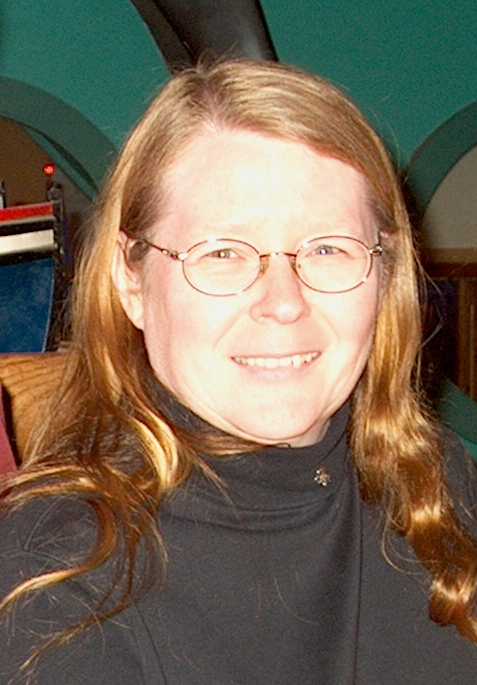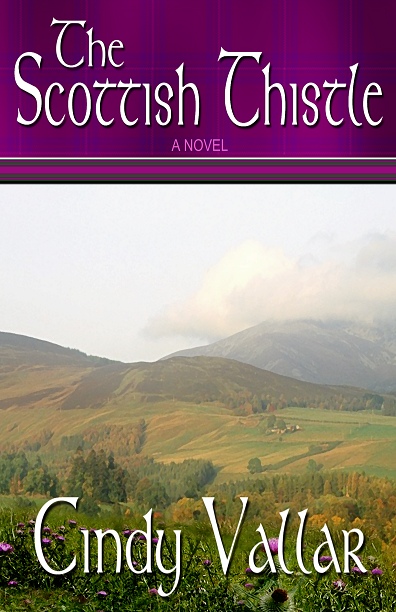
Born and raised in Pennsylvania Dutch Country, Cindy Vallar spent her formative years reading books and writing poetry. While in college, she saw a movie based on the life of Jean Laffite, a gentleman pirate who helped Andrew Jackson win the Battle of New Orleans in 1815. Intrigued by the mysterious, Vallar researched then started to write a novel about Laffite. Graduation, career, and marriage put that manuscript on a shelf where it remained until she began working as a school librarian for seriously emotionally challenged teenagers. She returned to writing to relieve the stress inherent in working in special education facilities.
Cindy Vallar holds a Bachelor of Arts Degree from Towson University and a Master’s Degree in Library Science from the University of Maryland. She is a member of Clan Cameron, EPIC, The Historical Novel Society, The Laffite Society, Scottish Clans of North Texas, the Texas Coalition of Authors, Texas Author Speak, the Louisiana Historical Society, and the National Maritime Historical Society.
Welcome to PASTimes, Cindy Vallar. Let's start by hearing a little about you and your road to publication. Your experience may be a unique one for our readers. Can you tell us a little about your publisher? Are they royalty paying?
My mother instilled the love of books and reading in me as a young child. I also researched subjects, like the Holocaust, that interested me but were rarely covered in school. As a result, I chose to become a school librarian for twenty years. When my husband’s job took us to the Midwest, I became a full-time writer. This allowed me to finish polishing my manuscript, which I then submitted to a publisher and received a contract.
That sounds like getting published was easy, but it wasn’t. I submitted to an e-publisher that also published paperback books. In spite of all my research, that publisher broke my contract several times, so I pulled my book, The Scottish Thistle, from them. A friend suggested I submit to her publisher, which promised to be a reputable business with a lot of novel ideas. The acceptance call came while I was in Scotland attending the International Gathering of Clan Cameron. (The Camerons and MacGregors are the principal clans in The Scottish Thistle.) Circumstances beyond my control eventually resulted in the demise of that publisher. Rather than resubmit to another publisher, I set the manuscript aside to work on other projects.
Last year, I received a request from Amber Quill Press to submit a manuscript. Since The Scottish Thistle was the only one ready for publication, I sent them that novel and they sent me a contract. I knew the head editor there and a number of their authors, so I think this time around The Scottish Thistle has found a good home. They do pay royalties, but they do not accept unsolicited manuscripts. AQP publishes the best in fiction, so they only consider novels from authors they invite to submit.

Do ebooks sell well? What do you have to do to promote them?
It doesn’t matter whether the novel is an e-book or a paperback. How well it sells depends on how much marketing and promotion the author does. The Scottish Thistle hasn’t been out long enough for me to answer how well it sells as an e-book, but I have sold quite a few paperback editions.
I make personal appearances at book festivals and organizations that invite me to speak. I maintain a website, Thistles & Pirates. I also take out ads and participate on mail lists. I conduct online workshops for RWA’s Hearts through History and Celtic Hearts Chapters, and I speak at conferences.
Tell us a little about your book.
In August 1745, Bonnie Prince Charlie came to Scotland to stage an uprising against the British Crown. The English had tossed out his grandfather, King James II of Britain, because they didn’t want another Catholic king to rule them. This is how the House of Hanover came to rule Britain. Prince Charles wanted to regain the throne, which he believed belonged to his father and him.
He sought the aid of the Highland clans, some of which felt that the House of Stuart was the rightful ruler of Scotland. Sir Donald Cameron of Lochiel brought out his clan and the Rising of 1745 began. His influence was such that had he not done so, historians believe the rising would never have happened.
I took this history and crafted The Scottish Thistle, a tale about loyalty and honor. A Highland warrior prizes both more than life, and when he swears his oath on the dirk, he must obey or die. Duncan Cameron heeds his chief’s order without question, but discovers his wife-to-be is no fair maiden. Although women are no longer trained in the art of fighting, Rory MacGregor follows in the footsteps of her Celtic ancestors. Secrets from the past and superstitious folk endanger Rory and Duncan as much as Bonnie Prince Charlie and his uprising. Rory and Duncan must make difficult choices that pit honor and duty against trust and love.
What kind of research did you do?
I do a lot of research into all facets of the time and place where I set my story. In the case of The Scottish Thistle, which took twelve years to research, I studied Scottish history, the uprising, the clans, the Camerons and MacGregors, food, dress, superstitions and folklore, folk medicine, customs, daily life, animals, geography, and many other subjects, including a bit of Gaelic.
My husband took me to Scotland to see the places I wrote about. Doing so helped me set the time and place far better, and I learned that some of my assumptions weren’t correct. The mountains were different and insects didn’t make noise at night like they do in the States. I visited Achnacarry, the estate of the Cameron chief and saw the only part of the house that remains from the one that stood during the ’45. It was eerie to walk where my characters and the real people who populate my story walked, but it brought me closer to them and their way of life.
Twelve years! I admire your perseverance. How and why did you pick your setting, one of the most tumultuous times in Scottish history?
During one boring staff meeting, I wrote a scene about a stranger riding across a windswept moor in a thunderstorm. I started researching Scotland and its history because I knew little about either and didn’t know when in time to set my story. The more I learned about Scotland, the more I fell in love with the country. One day I borrowed Sir Iain Moncrieffe’s The Highland Clans. There I read about the tragic history of the MacGregors, a clan that was proscribed and forbidden to use their name, and Sir Donald Cameron of Lochiel, who brought out his clan for the prince even though he didn’t think they could win.
You also have an interest in pirates. How did that come about?
Oh, I hate to leave you hanging, but...COME BACK TOMORROW FOR PART TWO OF THE INTERVIEW WITH CINDY VALLAR.
(And if you leave a comment, you'll be entered to win one of two copies of Cindy's book The Scottish Thistle - Cindy is giving away one print copy and one e-book copy.)
4 comments:
Very interesting, I can't wait till tomorrow's half of the interveiw!
Thank you for recording history about my family. I am a decendent of the Cameron Highlanders. Yes! Loyalty and Honour is greater than life itself! How true!Keep up the good work
regards
Don Cameron
P.O. Box 70 Moorooka ISSA Australia 4105
lovely to see you getting more exposure for your terrific book Cindy. Gosh it's had a rocky history, but now you have the pleasure of seeing it in print...go you. Look forward to reading more. Cheers
Louise(subscriber to Pirates and Privateers)
Aonaibh ri chéile!
The Scottish Thistle sounds just my cup of tea! *s* My historical WIP features quite a few Camerons, and a former WIP had a MacGregor (modern day, but with plenty of historical tie-ins) as the main protag. Both these clans hold a place in my heart. Cindy, your book sounds like a must read for me. So glad to have "discovered" you here!
Thanks for another great interview, ladies. Now on to Part Two!
Post a Comment